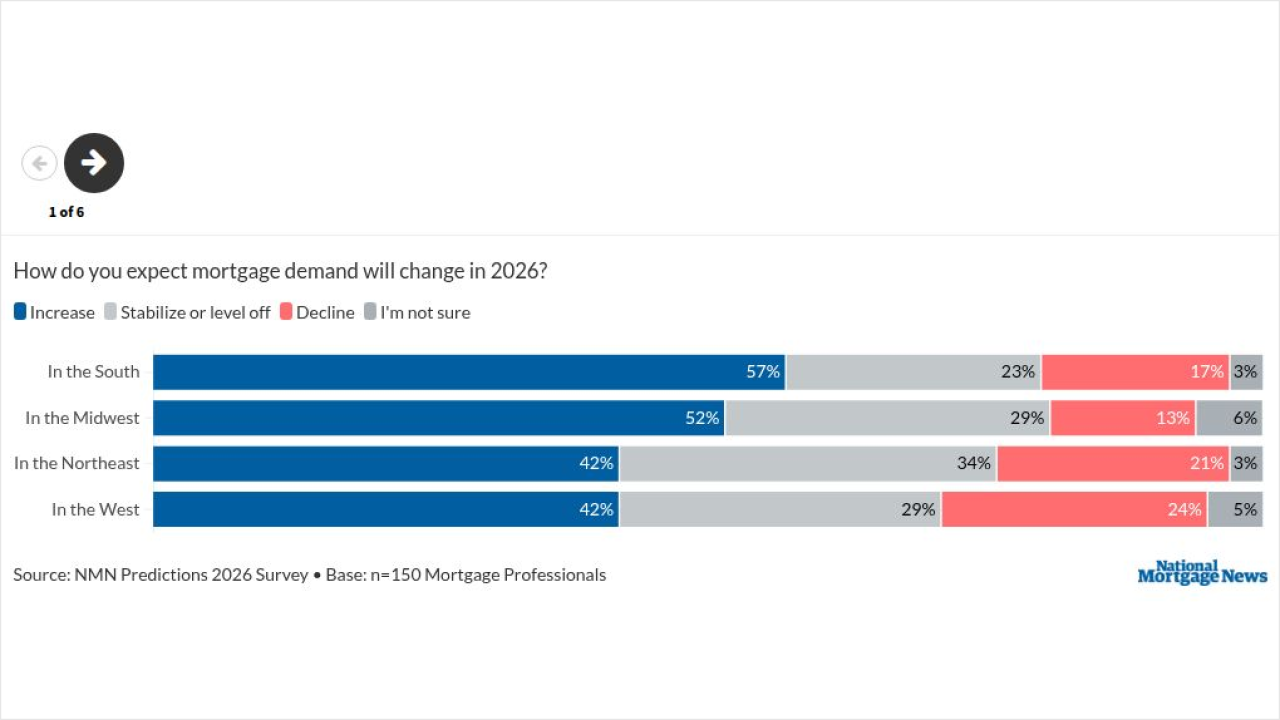Accounting adjustments made to account for stock price declines and goodwill led to a large loss at Finance of America during the fourth quarter, but its adjusted results were in line with
The net loss of nearly $1.34 billion under generally-accepted accounting principles reflected a year-end adjustment the company had to make for intangible assets, said Chief Financial Officer Johan Gericke. Goodwill reflects the extent to which the purchase price for acquisitions are above the sum of the net fair value of the tangible assets bought.
“The impairment did not impact adjusted net income and increased tangible book value by roughly $30 million as it created a deferred tax asset that will amortize over time,” Gericke said during the company’s earnings call. Book value does not include intangible assets and subtracts liabilities. Investors watch book value closely because it approximates what they might receive if a company’s assets were sold and its debt repaid.
When adjusted for all one-time charges, Finance of America earned $70 million during the fourth quarter. That’s down from an adjusted $75 million (GAAP earnings of $50 million) the previous three months. Without the impairment charge and related tax benefit, the company earned $15 million in the fourth quarter.
The adjustment to earnings comes as the company, which went public through
The company noted in its earnings release that it was able to offset most of a decline in mortgage revenue over the past year with a 53% gain in its specialty finance and services businesses. Full-year revenue was down 4% at $1.74 billion. Total revenue for the quarter totaled $383 million, down 16% from the previous fiscal period.
“SF&S is accounting for 51% of our revenue and the bulk of our adjusted net income. These businesses continue to perform well and we expect as SF&S to be the main driver of our profitability and in the foreseeable future,” said Cook during the earnings call.
While mortgage has become less of a contributor to the company’s earnings, it could rebound later this year, the company’s CEO said.
“We, like the rest of the industry, are adjusting our capacity for the expectation of lower volumes. We've reduced headcount both on and offshore to continue to optimize mortgages, to break even, or make a little bit of money,” said Cook. “We certainly think, as we enter the spring buying season, that the prospects for our mortgage business improve.”
Revenue from mortgage originations totaled $187 million during the quarter, down 20% from quarter before. Margins on mortgage originations dropped to 2.52% from 2.61%. Loan funding volumes in this category totaled nearly $6.9 billion in the quarter, down 7% from the previous three months. The home-purchase component, which totaled $3.4 billion, was down 9%. However, non-agency loan fundings rose 25% to $1.24 billion, in line with expectations they would offset declines in mainstream mortgages originated into government-related markets. Mortgage servicing rights at the company also rose, climbing to $428 million from $341 million the previous quarter.
While mortgage originations were lower on a consecutive-quarter basis, they did set a record for the year, in line with broader industry trends. Commercial and reverse mortgage originations also set annual records, according to the company’s earnings presentation. Residential mortgage originations totaled nearly $29.44 billion in 2021, up slightly from $29.06 billion the previous year.
However, executives expect to be potentially contending with thinner margins in all three areas of the business going forward, not just in the residential mortgage market. Both the
“In times like these, you’ll see some pressure on spreads,” Cook said.




